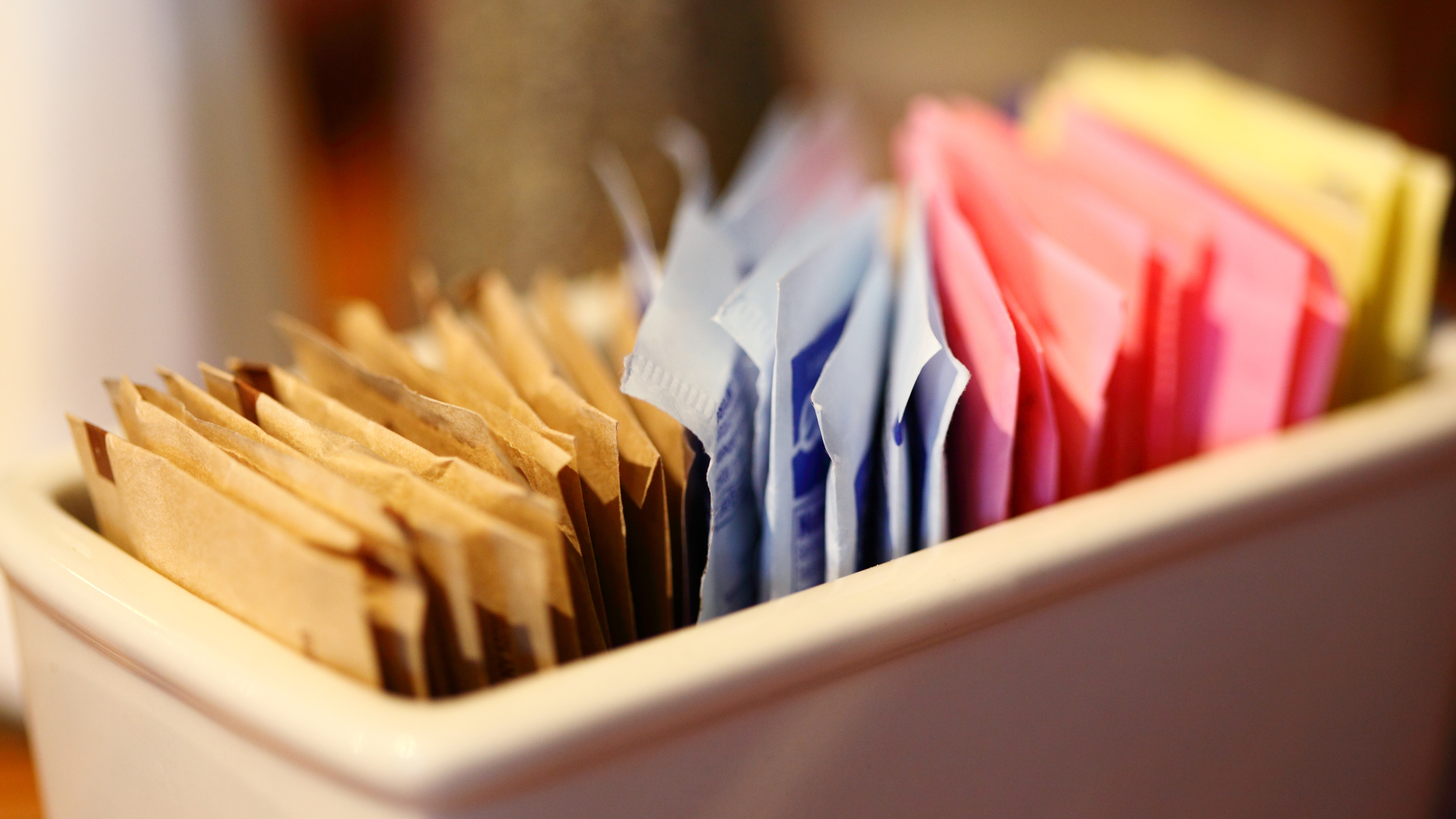Great, Artificial Sweeteners May Trick Your Brain And Store More Fat
I haven't had a can of Coke in several years; I believed that my body might go into shock from all that sugar. So before I became LaCroix junkie, I was a straight-up Diet Cokehead, virtuously chugging can after can, believing that I was helping my body by avoiding the sugar-filled stuff. But what this new Popular Science article presupposes is... what if I wasn't?
Granted, I still remember the carcinogenic scares related to artificial sweeteners in the 1980s. While those days are long gone, it's still a closer race than I realized as to whether fake sugar is better for you than the real stuff. In "Everything You Never Wanted To Know About Artificial Sweeteners" (subhead: "Your diet soda might just be worse than a regular one"), PS looks at the many studies related to sugar vs. fake. Turns out, "You can trick your tastebuds (sort of) into thinking that aspartame or saccharin is the sugar you crave, but your brain isn't so simple." (Really? Even mine?)
More recent studies suggest that your insulin response acts similarly when faced with the sweet stuff, whether real or not, even suggesting that "consuming fake sugar actually trains your insulin response to store more fat, not less." Basically, "that diet soda is still prompting your pancreas to store fat, even though you're not getting to enjoy real sugar—your brain can tell the difference. Artificial sweeteners don't trigger our reward circuits the same way, so you don't get the satisfaction of ingesting sugar." This incongruity may help explain why many studies point to the fact that people tend to gain weight while drinking diet drinks, although obviously, many other factors are involved (like what they're eating).
And don't even get me started on the 2007 study the article points to, in which a study of rats determined that either kind of sugar, fake or not, can be as addictive as cocaine. Damn. Where's that LaCroix?
